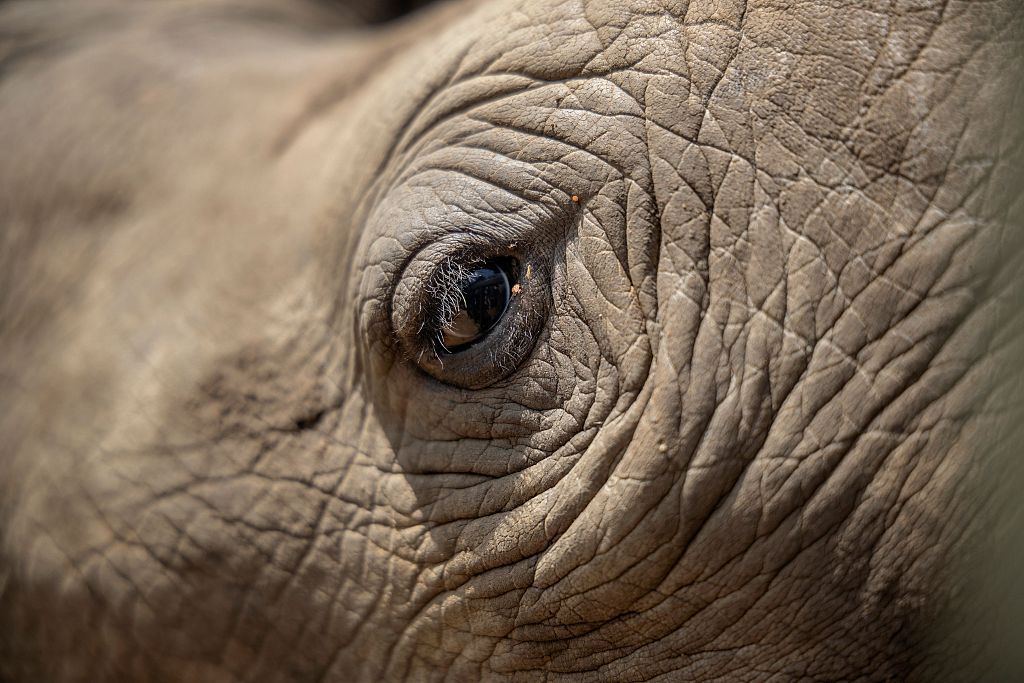
The eye of a rhino calf is seen at the Rhino Orphanage at an undisclosed location near Mokopane, Limpopo Province, South Africa, January 9, 2021. /CFP
The eye of a rhino calf is seen at the Rhino Orphanage at an undisclosed location near Mokopane, Limpopo Province, South Africa, January 9, 2021. /CFP
The number of rhinos killed in South Africa last year dropped by 33 percent, official figures showed on February 1, partly helped by a coronavirus national lockdown which severely limited movement by poachers.
But the gains were marginally reversed when movement restrictions were loosened.
At least 394 rhinos were slaughtered in 2020, down from the 594 recorded the previous year, Environment Minister Barbara Creecy said in a statement.
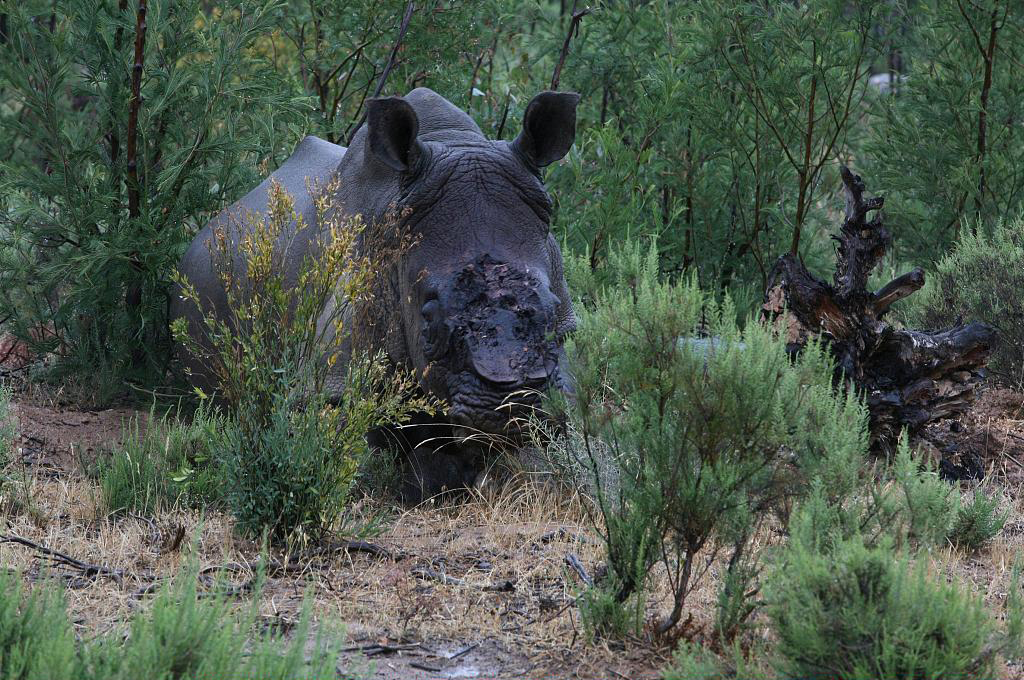
A pregnant six-year-old female White Rhino rests after she and her nine-year-old bull companion were drugged and de-horned by poachers, Worcester, South Africa, December 14, 2011. /CFP
A pregnant six-year-old female White Rhino rests after she and her nine-year-old bull companion were drugged and de-horned by poachers, Worcester, South Africa, December 14, 2011. /CFP
Most of the rhinos, 245, were killed in the Kruger National Park, a tourist magnet bordering Mozambique.
"During the COVID-19 hard lockdown period we had a significant reduction in poacher incursions into the Kruger," said Creecy.
"However, that changed later in the year as the lockdown levels eased and a significant spike in poaching was experienced toward the end of 2020, especially during December."
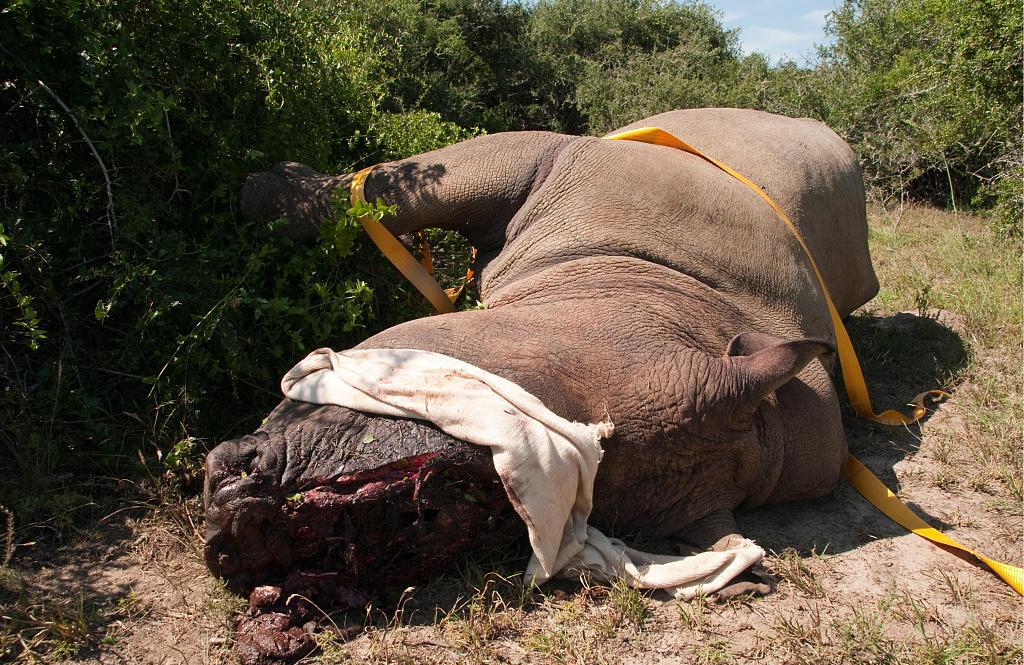
A wounded rhino discovered by game rangers at a game reserve near the Kenton-on-Sea, Eastern Cape, South Africa, February 11, 2011. /CFP
A wounded rhino discovered by game rangers at a game reserve near the Kenton-on-Sea, Eastern Cape, South Africa, February 11, 2011. /CFP
South Africa, home to nearly 80 percent of the world's rhinos, has seen its poaching numbers steadily decrease for the sixth straight year.
But poachers, fueled by a market for rhino horns in Asia, where they are used in traditional medicine or as a claimed aphrodisiac, have continued to mount an onslaught on the species.
Creecy said the decline in deaths should be celebrated as "a moderate win" but anti-poaching campaigns should not be relaxed, given the demand for horns.
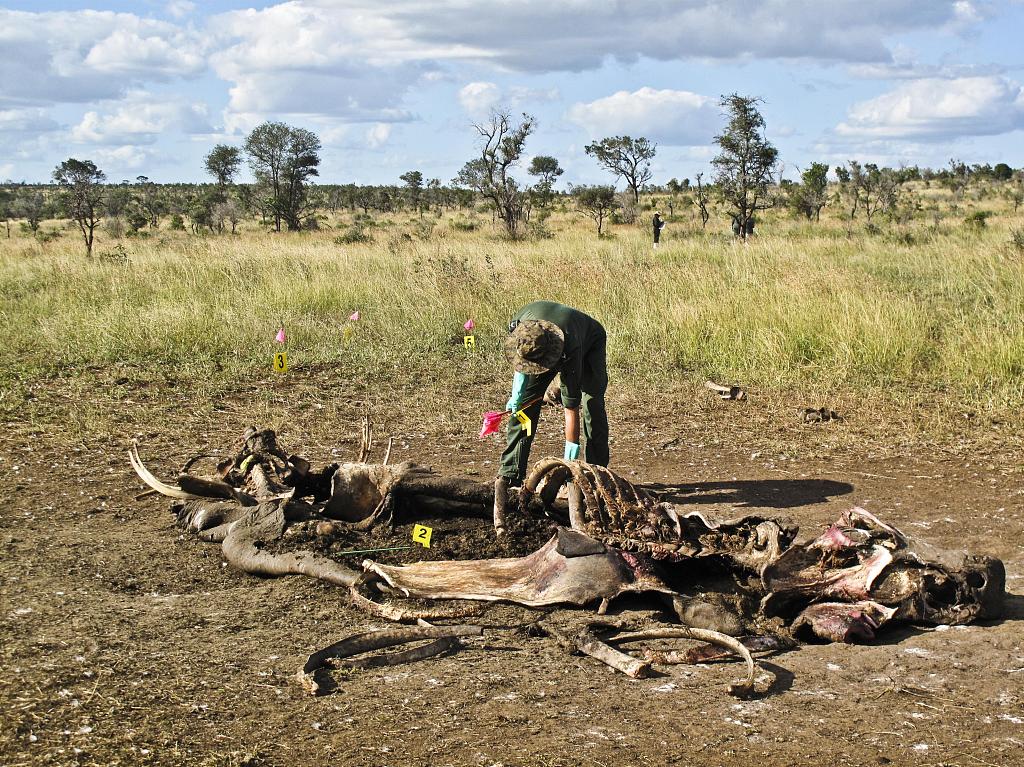
Senior investigator for SANParks Frik Rossouw places clue markers on and around the carcass of a poached rhino found already stripped by scavengers in the Kruger National Park, South Africa, April 5, 2012. /CFP
Senior investigator for SANParks Frik Rossouw places clue markers on and around the carcass of a poached rhino found already stripped by scavengers in the Kruger National Park, South Africa, April 5, 2012. /CFP
Conservationists and opposition politicians say the latest figures ignore an overall decline in the rhinoceros population.
"For a number of years, there have been questions about what exactly is the population size of white and black rhinos," said Julian Rademeyer, director for East and Southern Africa at the Global Initiative Against Transnational Organized Crime.
"Ultimately, if there are fewer rhinos, they become a lot harder to find for poachers."
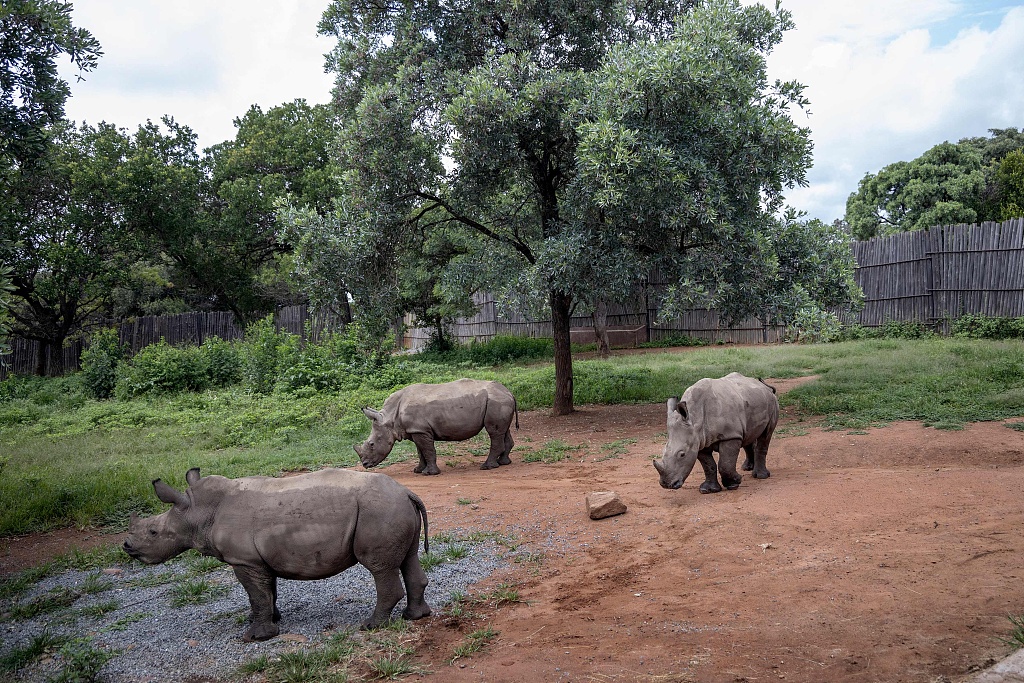
Rhino calves that lost their mothers at the hands of poachers are seen at the Rhino Orphanage at an undisclosed location near Mokopane, Limpopo Province, South Africa, January 9, 2021. /CFP
Rhino calves that lost their mothers at the hands of poachers are seen at the Rhino Orphanage at an undisclosed location near Mokopane, Limpopo Province, South Africa, January 9, 2021. /CFP
The World Wide Fund for Nature (WWF), formerly named the World Wildlife Fund, said it had recorded an "almost 70 percent" decline in rhino numbers in the Kruger National Park over the last decade as a result of drought and poaching.
A report released last month by the national parks agency found there were only 3,549 white rhinos and 268 black rhinos left in the Kruger.
The country's largest opposition party, the Democratic Alliance, said the figures "paint a grim picture on the future survival" of rhinos in South Africa.
(If you want to contribute and have specific expertise, please contact us at nature@cgtn.com.)
Source(s): AFP

